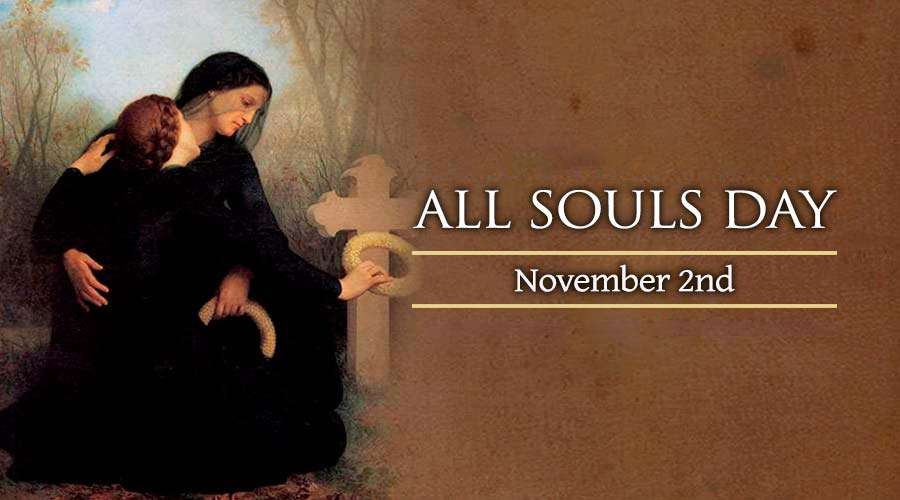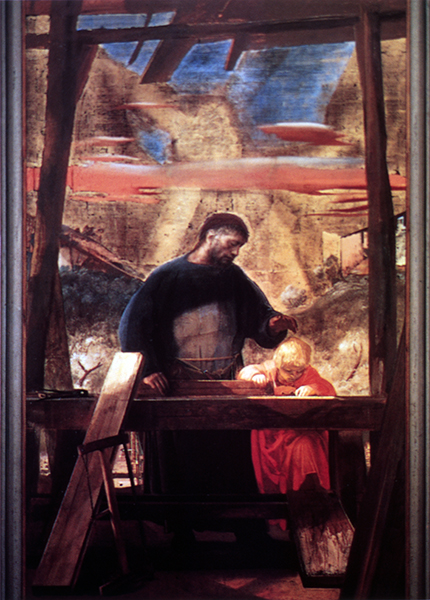Greetings my brothers sisters,
Each year on the second day of November, we celebrate the Feast of All Souls. This follows the
Solemnity of All Saints, a celebration of all those who have passed from this life and are enjoying eternal
life in heaven. Some of these are recognized officially, that is, “canonized”, placed on the official list
(canon) of those whom the Church knows are in heaven, while others are certainly in heaven though not
known by us. All Souls, on the other hand, are those who have died and are still being purified for the
life of heaven. They are in purgatory which the Catechism of the Catholic Church describes as such:
“All who die in God’s grace and friendship, but still imperfectly purified, are indeed assured of their eternal salvation; but after death they undergo purification, so as to achieve the holiness necessary to enter the joy of heaven”.
Catechism of the Catholic Church #1030
On All Souls day we pray for these brothers and sisters so that they might be purified of their sins and faults and brought into heavenly glory. This is, after all, the vocation we all have: to live forever with God in heaven!
Article 1032 of the Catechism states that this practice can already be found in the Scriptures in the book
of Maccabees (2Mac 12:46) and that
“from the beginning the Church has honored the memory of the dead and offered prayers in suffrage for them, above all the Eucharistic sacrifice, so that, thus purified, they may attain the beatific vision of God. The Church also commends almsgiving, indulgences, and works of penance undertaken on behalf of the dead”.
Catechism of the Catholic Church #1032
We can see then the importance of praying for those who have died and whose presence in heaven is
not assured. The last quote from the Catechism also indicates other ways we might assist the souls in
purgatory: almsgiving, indulgences and works of penance. Have we considered offering alms on behalf
of those who have died? In fact, this is practiced even in secular circle in some way when people are
asked to make donations to a particular charity or association on behalf of a departed loved one, “in lieu
of flowers”. We are encouraged to give alms so that the souls undergoing the final purification of
purgatory might enjoy eternal life in heaven soon.
Indulgences are explained in article 1471 of the Catechism:
An indulgence is a remission before God of the temporal punishment due to sins whose guilt has already been forgiven, which the faithful Christian who is duly disposed gains under certain prescribed conditions through the action of the Church which, as the minister of redemption, dispenses and applies with authority the treasury of the satisfactions of Christ and the saints.
Catechism of the Catholic Church #1471
These can be offered for both the living and the dead. The requirements for obtaining an indulgence are
under the care of the Church since
An indulgence is obtained through the Church who, by virtue of the power of binding and loosing granted her by Christ Jesus, intervenes in favor of individual Christians and opens for them the treasury of the merits of Christ and the saints to obtain from the Father of mercies the remission of the temporal punishments due for their sins.
Catechism of the Catholic Church #1478
Indulgences can be obtained at various times and in various ways, always involving prayer and some act
of charity or penance.
This last is also suggested as a way to pray for the souls in purgatory: works of penance. We deny
ourselves something in this life so that the souls might merit from them and be brought into heaven.
“Offering it up” is the common expression used. What a wonderful way to demonstrate my love and
care for a loved one who has died, by sacrificing my own comfort and pleasure so that they might enjoy
eternal bliss in heaven. May God guide us in our prayers and actions for all souls this month, as we
continue discerning our vocation in this life which will lead us to eternal life in heaven.
St. Joseph, patron of the dying, pray for us.

Fr. Brian, OSJ




